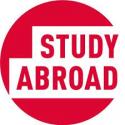Financial Preparation
The cost of living in Taiwan is cheaper compared to Canada. However, it is still important to budget your cost in Taiwan. In terms of financial support before going on exchange, SFU provided numerous bursaries and scholarships for students participating in exchange programs. Many of my friends successfully applied for these scholarships, which provided them with extra financial support for their exchange experience. On average, a meal at a restaurant or a local eatery in Taipei can range from around $100 NTD to $500 NTD per person, which is about $4 CAD to $20 CAD (not including fine dining). While in Taiwan, I always carried around $3000 NTD in my wallet. This allows me to have sufficient money for food, drinks, shopping and hangouts with friends. Having enough cash is important since Taiwan is predominantly a cash-based society, and certain places like night markets and small street shops only accept cash payments. Fortunately, Taiwan has a lot of ATMs located at all convenience stores, such as 7-Eleven and Family Mart, as well as at each MRT (Mass Rapid Transit) station, making it easy to withdraw cash when needed.
Packing
For preparing an exchange to Taiwan, there are a few important packing tips to keep in mind. Firstly, remember to exchange some Taiwanese dollars before your departure, as you may not have immediate access to creating a bank account. It is recommended to bring around $20,000 to $30,000 NTD (excluding dorm costs) to purchase necessities like pillows, bed sheets, blankets, since these items are not included in the dorm, and other items when you first arrive in Taiwan.
If you are going on a spring term exchange, like I did in 2023, keep in mind that February in Taiwan can be a bit cold. Pack some long-sleeved shirts, long pants, and jackets to stay warm. However, as the exchange term covers May and June, which are known for their hot weather in Taiwan (often exceeding 30 degrees Celsius), it's important to include summer clothes in your packing list. However, clothing in Taiwan can be quite affordable, especially at night markets, where you can find a wide variety of items priced between $100 NTD to $300 NTD.
Taiwan is a very convenient country, so most items you may need are easily purchasable. For example, in convenient store such as 7-Eleven, you can find things like toothbrush, towels, medicine, ATM, etc. I suggest to not worry too much about packing everything that you think you might need. Just ensure that you have enough cash with you initially to cover your immediate needs.
Travel and Transportation
In Taiwan, the primary modes of transportation for students are the MRT, buses, and U-bikes, and all of them require an EasyCard, which is very similar to a compass card in Vancouver. The student ID that NTU gives out is an EasyCard. However, places like MRT stations and convenience stores also sell them. The MRT covers major urban areas of Taipei City and New Taipei City. It offers a reliable and comfortable means of transportation, connecting to various destinations such as universities, shopping districts, and popular attractions. Buses are another option, providing access to areas not covered by the MRT and offering flexible routes throughout the city. Additionally, U-bikes, a bike-sharing system that is very convenient in Taiwan, are widely available in many cities, allowing students to enjoy the convenience of cycling for short distances. U-bike is also very useful inside the NTU campus since the bike stations are available throughout the campus, providing students easy access to bicycles when they move around different buildings. Walking from one location to another in NTU usually takes around 10 to 15 minutes; for me, it is very convenient to just bike, saving me a lot of time.
Preparation Tips for Future Students
The application process for applying to studying abroad can be very challenging and confusing. I recommend contacting friends who have gone on exchange before and asking them if you need help. For me, I got really confused about getting my official acceptance letter because I didn't receive any email even by the end of December 2022, and I know the exchange semester starts in February 2023. Finally, the official acceptance letter arrived at the ISS office on January 3, 2023. Another thing is that NTU will arrange a NTU buddy for each business exchange students. I found that really helpful since you can ask the buddy almost anything and they will try to help you out. For me, I got a bit confused with the course registration process, my buddy helped me a lot with clarifying things.






